Top Stories of the Week
Vanity Plates on Offer under Transport Ministry’s New Vehicle Registration System
Young Ethiopians Are Falling Victim to Fake Immigration Consultants
UN Food Agency Cuts Rations for Refugees in Ethiopia
How Ethiopia Can Weaponize AI Against Financial Exclusion
COMESA Bets on New Payment System to Reduce Dollar Reliance in Kenya, Ethiopia, Egypt

Advertisement
The Digital Opportunity Summit 2025 by Arif Network is bringing together local talent, startup founders, and innovators with the diaspora to connect, collaborate, and create impact. 🌍
From inspiring keynotes to hands-on networking and B2B meetings, this summit is designed to spark new partnerships and fuel digital transformation.
If you’re a startup founder, policymaker, or government official attending GITEX or currently in the UAE, we invite you to join us in Dubai and be part of this transformational journey.
Vanity Plates on Offer under Transport Ministry’s New Vehicle Registration System
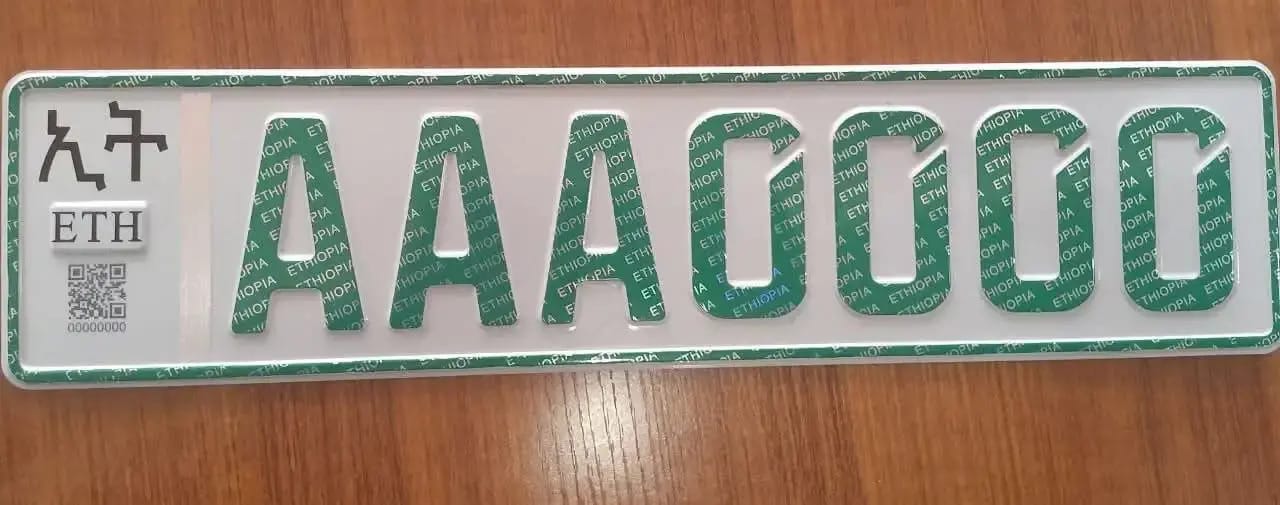
The Ministry of Transport and Logistics has announced that under Ethiopia’s new vehicle plate registration system, individuals and organizations will be able to order and obtain customized plate numbers.
Alemu Sime (PhD), Minister of Transport and Logistics, touched on vanity plates during a press conference last week, where he said that a new registration system is necessary to fill in the gaps left behind by an outdated framework.
According to the ministry, the new plate registration system is based on a single, technologically backed national production, where each registered vehicle will be assigned a unique federal identification number and a corresponding digital sticker, both integrated into a secure database. Read more.
Revenue, Customs Launch Eight New Tech Systems
The Ministry of Revenues and the Ethiopian Customs Commission have unveiled eight digital systems designed to modernize tax and customs operations.
The new platforms include the Ethiopian Electronic Cargo Tracking System, Smart Customs Border Control System, AI-based Customs Chatbot, AI-powered Passenger Risk Management System, Electronic Receipt Management System, Electronic Clearance, Electronic Tax Refund System, and the Customs Revenue Collection Performance Monitoring System. Read more.
Young Ethiopians Are Falling Victim to Fake Immigration Consultants
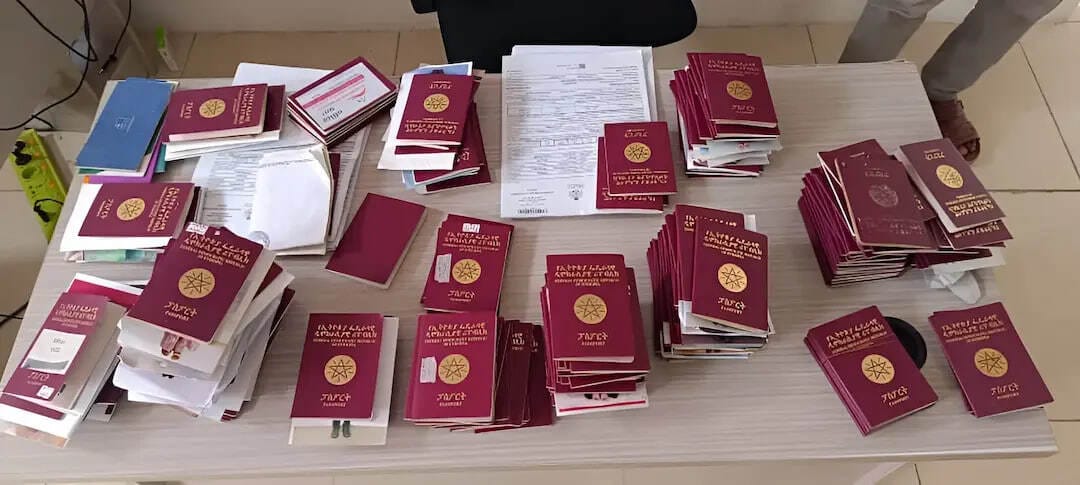
Ethiopian immigration consultants promise jobs in Japan, Canada, or Dubai. They advertise on TikTok with glowing testimonials. And yet, for thousands of Ethiopians, these “travel consultancies” have become the new face of migration fraud.
Victims lose their life savings, too often hundreds of thousands of birr, for fake documents and false hope. As unemployment deepens and migration dreams intensify, the rise of digitally shrouded consultancies shows how easily opportunity can turn predatory. Read more.
Premier Awards Outstanding Taxpayers with New Privileges
Prime Minister Abiy Ahmed (PhD) has unveiled a set of new benefits for Ethiopia’s top taxpayers, including special diplomatic passports and VIP travel privileges. The announcement was made during the 7th Loyal Taxpayer Recognition and Awards Ceremony held in Addis Ababa. Read more.
UN Food Agency Cuts Rations for Refugees in Ethiopia
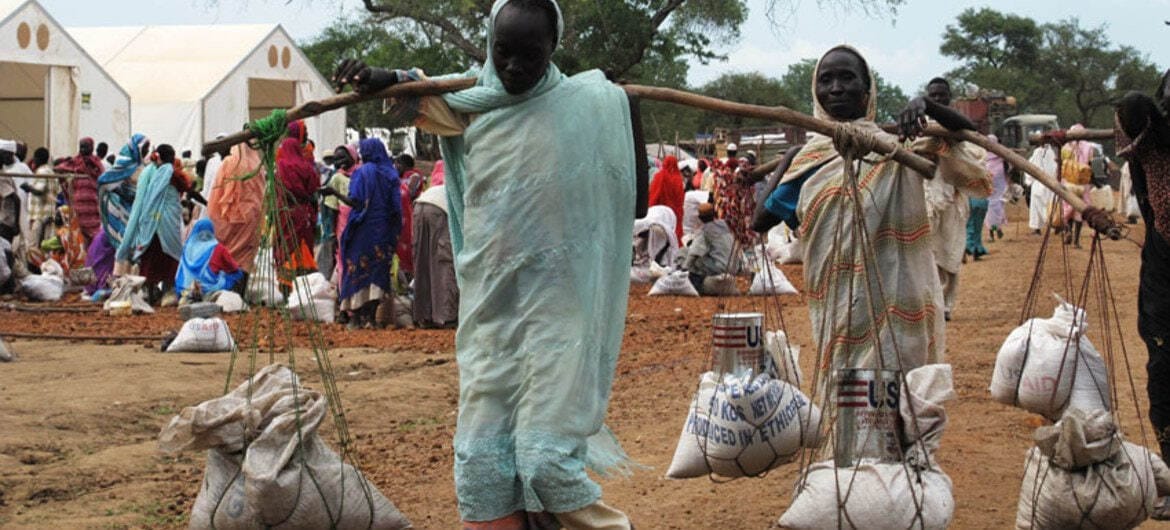
The U.N. World Food Programme (WFP) said Thursday that severe funding shortages have forced it to slash food rations for nearly 780,000 refugees in Ethiopia, pushing already vulnerable populations toward rising hunger. The cuts, which began in October, reduce rations from 60% to 40% of a full food basket.
This provides each person with fewer than 1,000 calories per day, less than half the recommended daily intake. Only 70,000 newly arrived refugees fleeing conflict in neighboring Sudan and South Sudan will continue to receive full rations for the next six months. Ethiopia hosts one of the largest refugee populations in Africa, including many from Sudan and South Sudan. Read more.
Behind Viral TikTok Song Birabiro Is an Ethiopian AI-Powered Children’s Learning App
Birabiro, a 60-second AI song about a caterpillar, just went viral in Ethiopia, 4.3M views, 53K dubs. But it’s not just a TikTok trend. It’s part of Aynu Kids, an edtech app using AI to teach children. Read more.
Business news doesn’t have to be boring
Morning Brew makes business news way more enjoyable—and way easier to understand. The free newsletter breaks down the latest in business, tech, and finance with smart insights, bold takes, and a tone that actually makes you want to keep reading.
No jargon, no drawn-out analysis, no snooze-fests. Just the stuff you need to know, delivered with a little personality.
Over 4 million people start their day with Morning Brew, and once you try it, you’ll see why.
Plus, it takes just 15 seconds to subscribe—so why not give it a shot?
Can Blockchain Brew a Fairer Coffee Trade? An Ethiopian Startup Thinks So
Waga Token, an Ethiopian blockchain startup formed earlier this year, has deployed its Minimum Viable Product (MVP) on Coinbase’s Base Sepolia testnet. The company claims this marks a comprehensive digital coffee value chain built on blockchain infrastructure. Read more.
COMESA Bets on New Payment System to Reduce Dollar Reliance in Kenya, Ethiopia, Egypt
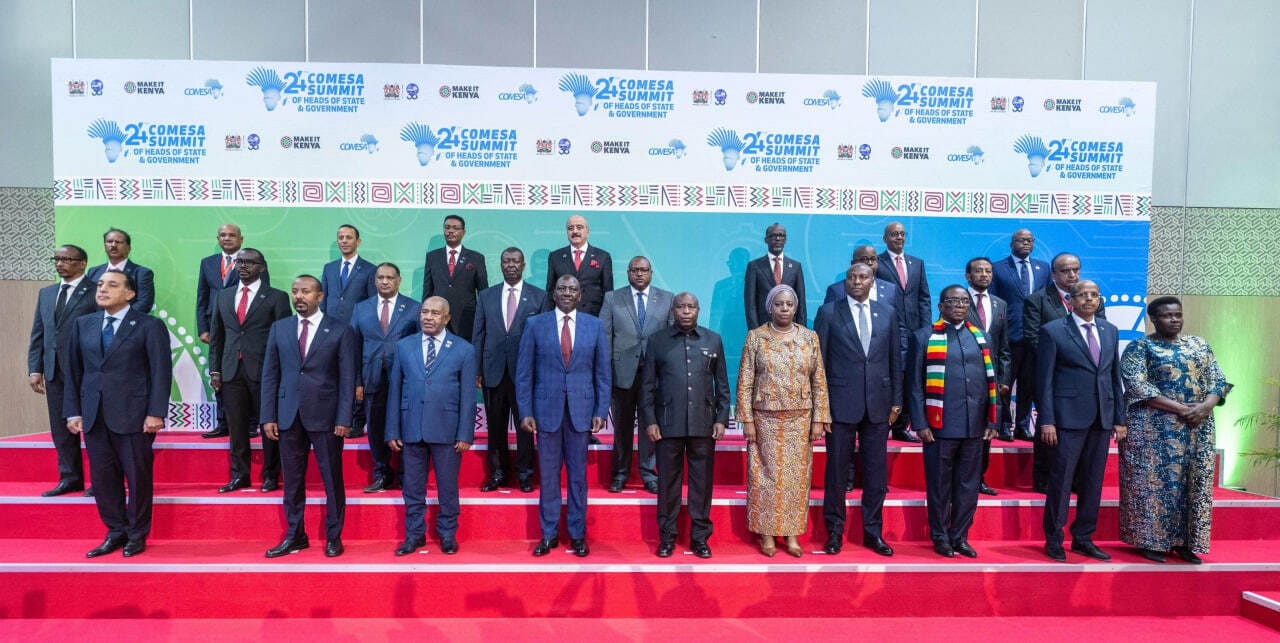
The Common Market for Eastern and Southern Africa (COMESA), a 21-country regional trade bloc representing over 640 million people, has launched a new digital payments platform that could make it easier and cheaper for African businesses to trade directly in local currencies instead of the US dollar.
The system, known as the Digital Retail Payments Platform, is designed to enable traders to settle cross-border transactions directly in their national currencies. It is being tested between Malawi and Zambia, but the plan is to roll it out across all 21 COMESA member states, including Kenya, Ethiopia, and Egypt. Read more.
Agri-Tech Partnership Introduces Pay-As-You-Go Tractor Model to Ethiopia’s Farmers
Heifer Ethiopia and Nigerian agritech firm Hello Tractor have partnered with the Ministry of Agriculture to launch a pay-as-you-go tractor financing model. Read More.
What’s on Our Mind
Ethiopia’s Sudden Green Turn Risks Repeating Old Mistake
Last week, Ethiopia’s Ministry of Transport and Logistics announced a zero-tariff scheme for all-natural gas–powered vehicles entering the country. The decision, officials said, aims to make efficient use of output from a newly inaugurated liquefied natural gas (LNG) project in the Somali Regional State.
It came just days after Prime Minister Abiy Ahmed declared that the country’s existing ban on petroleum-powered vehicles would soon extend to trucks and other heavy-duty vehicles. Together, the two moves underscore the administration’s growing appetite for energy independence and its determination to wean Ethiopia off imported fuel.
But in the rush to execute, the government appears to be sprinting ahead of its own capacity to deliver.
When Ethiopia first banned the import of petrol-powered private cars nearly two years ago, the decision was as abrupt as it was ambitious. The fallout was immediate. Hundreds of vehicles were stranded at dry ports as customs officers scrambled to interpret cutoff dates. Businesses that depended on heavy-duty vehicles, especially those transporting perishables, waited months for ministries to coordinate on how the ban would apply to them. Even diplomatic agencies such as the African Union were forced to petition the Prime Minister’s Office to release vehicles caught in bureaucratic limbo.
That episode should have served as a cautionary tale about the perils of policymaking by decree. Instead, the government seems intent on repeating it.
Ethiopia’s Customs Commission only received official notice from the Finance Ministry about the new tariff exemption late last week, after the policy had already been announced publicly. Importers of trucks and buses now brace for the same confusion that followed previous energy directives, anticipating weeks of negotiation with officials over how to manage vehicles already in transit.
The problem is not ambition. Ethiopia’s desire to transition toward cleaner energy and reduce its carbon footprint is laudable. Nor is the shift to natural gas itself without merit. Globally, natural gas vehicles (NGVs) have been in production since the 1930s, offering lower emissions and, in some cases, cheaper operating costs. Yet even today, fewer than 25 million such vehicles are on the road, a small fraction of the global fleet.
The reasons for that sluggish adoption are instructive. Building refueling infrastructure is expensive and slow. Range anxiety, how far one can drive before running out of fuel, remains a major deterrent. And converting existing fleets or setting up maintenance networks requires time, training, and incentives.
Ethiopia, by contrast, is pushing forward without these foundations in place. The country’s LNG project is still in its infancy, and no large-scale refueling or distribution infrastructure yet exists. Urban transport operators, who might have benefited most from a gradual transition, are left with little clarity on timelines, standards, or financing options.
In many ways, this pattern reflects a broader feature of Ethiopia’s recent economic policymaking: visionary in scope but improvisational in execution, marked by a recurring cycle of enthusiasm, disruption, and slow correction.
Ethiopia’s transition away from petroleum dependence is both necessary and inevitable. But the path there cannot be paved with declarations alone. Policymakers would do well to remember that energy transitions, like the economies they seek to transform, require patience, coordination, and attention to the smallest details.
Otherwise, the country risks learning the same lesson twice: that haste, however well-intentioned, is rarely efficient.
Ethiopia Begins Export of Goods Under AfCFTA Trade Framework
Ethiopia has begun exporting goods under the African Continental Free Trade Area (AfCFTA) framework. The first shipment, consisting of meat, fruits, and other agricultural products, was dispatched to Somalia, Kenya, and South Africa through both land and air routes. Read more.
How Ethiopia Can Weaponize AI Against Financial Exclusion
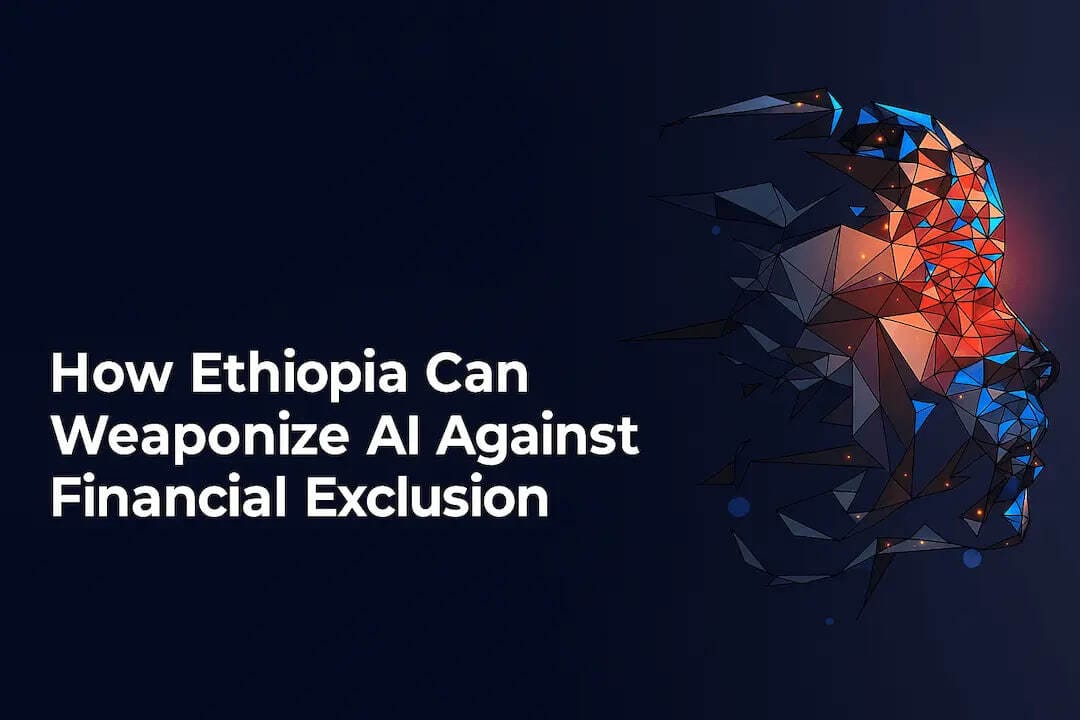
AI’s real promise for Ethiopia's financial ecosystem lies not just in chatbots or automation, but in inclusion.
From farmers without insurance to entrepreneurs without collateral, millions remain locked out of opportunity. AI-driven credit scoring, voice-based banking, and personalized financial tools could finally bridge this gap.
But progress demands investment, data quality, and ethical standards. If done right, Ethiopia could leapfrog legacy banking systems, leveraging DFS and existing datasets. Read more.
Digital Platform Launched to Tackle Corruption in Construction Sector
The Ethiopian Construction Authority (ECA) on Friday inaugurated the Construction Regulation Information System (CRIS), a comprehensive platform aimed at replacing the fragmented, opaque, and manual processes that have long hindered efficiency and fueled malpractice in the sector. Read more.
Heads Up: What’s Coming & What to Catch
From Our Bookmarks

